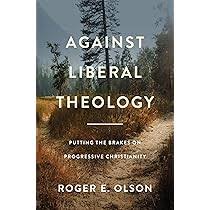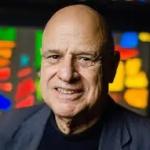The Crisis of Liberal Theology
Here I end my discussion series of my book Against Liberal Theology: Putting the Brakes on Progressive Christianity with Chapter 8: The Crisis of Liberal Theology. If you have read the chapter, you may comment (following the rules below). If you have not read the chapter, you may ask a question.
There can be no doubt that so-called “mainline Protestant churches” have dwindled in numbers and influence in the past half century. According to Gary Dorrien, “By 1895, [the liberal] movement dominated the discourse and institutions of the American Protestant establishment.” (165) However, also according to him, “liberal congregations neglected the Bible, showed little or no interest in evangelism, and sneered at revival preaching. Their own preaching was sentimental and psychologized; they prized gradualism and niceness, looked for God only in the universal, and has no concept of divine judgment or the fear of God.” (168) “Theologian Stephen Webb puzzled that contemporary liberals found it possible to write so much despite believing so little.” (168)
As I say in the chapter, I was myself a member of two liberal Protestant churches—one Baptist and the other one Presbyterian. I served on the executive committee of the former and as youth pastor of the latter. Both fit the criticisms described above. Not all members were liberal theologically, but the pastors were as were the leading members. Both struggled to survive while nearby conservative churches thrived.
In this chapter I quote from several liberal theologians about liberal Christianity’s crises and why liberal theology and religion have struggled to regain any of the dominance they once had. The gist is that liberal theology and liberal Christianity are pale reflections of liberal American culture. There is no particular reason to be a liberal Protestant rather than a member of a secular charitable, fraternal, civic-minded organization.
Thomas Oden, a convert from liberal theology to conservative theology (but not fundamentalism), identified the “danger of liberalism” as “that the Christian message may become a mirror reflection of the spirit of the age.” (171) I was not a big fan of Oden’s and he and I clashed over open theism which he publicly condemned as “just process theology.” When I tried to correct him, in a public forum, he ordered me to sit down and be quiet. (He did later apologize for his rudeness but not for misrepresenting open theism.)
Sidebar: There is a glaring mistake in this chapter! A crucial word is missing. That in spite of several rounds of proofreading by me and the publisher’s editor! Can you identify it?
Well, I think I have made clear why I think liberal theology is erroneous. It is erroneous because it claims to be Christian while departing from anything recognizable as classic, historic, biblical, orthodoxy Christianity. I cannot prove that liberal theology is wrong except in that. I consider my book proof of it. Unlike many diatribes against liberal theology I have quoted extensively from liberal theologians themselves to prove it.
Someone asks here what “orthodoxy” is. Well, at the very minimum orthodoxy is Nicene Christianity. As an Anabaptist I am not big on the creeds of Christendom—as if they are infallible or sacred. However, I strongly believe that the essential teachings of the Nicene Creed of 381 (the Niceno-Constantinopolitan Creed) summarizes essential apostolic belief and teaching about Christ and the Trinity. I do not think the Nicene Creed EXHAUSTS orthodoxy, but it is the CENTER of it. I also think, for example, that supranaturalism (to borrow Paul Tillich’s sneering word) is an essential part of authentic Christianity. (Both Tillich and I mean by it something other than paranormal experiences per se or even belief in every miracle in the Bible such as, for example, an ax head floating. I personally believe it, but I won’t quarrel with someone who doesn’t.)
Gary Dorrien has done more than anyone else to try to breathe new life in liberal Protestant theology. He has written many books from that perspective. I know from talking to him that he favors something LIKE “Boston Personalism,” a particular type of liberal theology promoted by theologians Borden Parker Bowne, Edgar Sheffield Brightman, and Peter Bertocci. Personally, I think it is a very mild form of liberal theology. Liberal theologian Douglas Ottati has produced what I consider the most dangerous volume, manifesto, of liberal theology in Theology for the Twenty-first Century. It’s dangerous because it make liberal theology sound so attractive—especially to persons already attracted to liberal theology but dissatisfied with what liberal theologians have so far produced by way of systematic theology. In both cases, I find what these liberal theologians (Dorrien and Ottati) affirm attractive while finding what they deny atrocious—insofar as it claims to be Christian and not, for example, Unitarian.
*Note: If you choose to comment, make sure you have read the chapter. If not, you may ask a question. In either case, and in any case, make sure your comment or question is relatively brief (no more than 100 words), on topic, addressed to me, civil and respectful (not hostile or argumentative), and devoid of pictures or links.*














